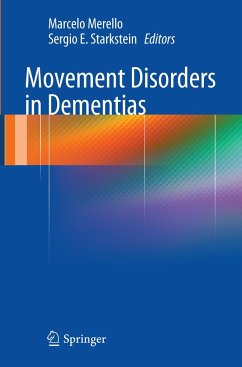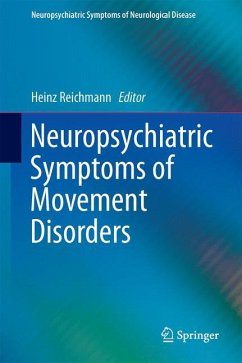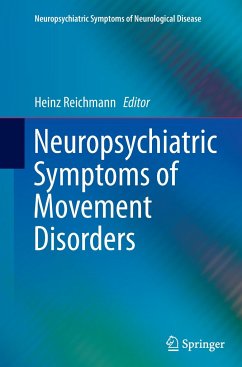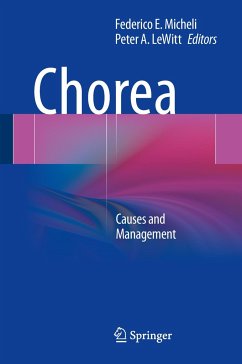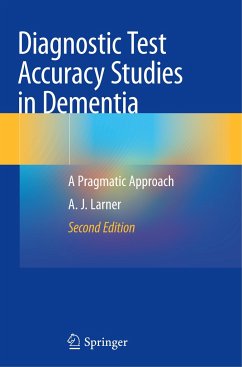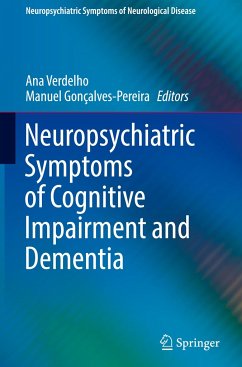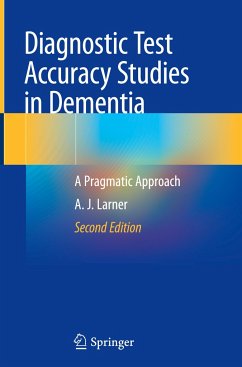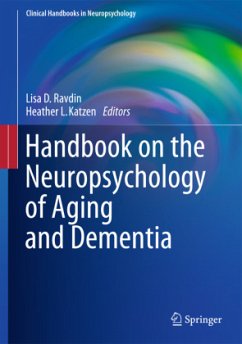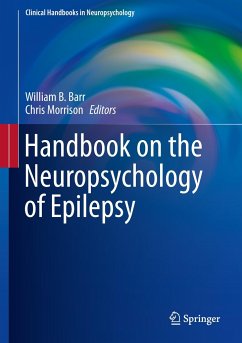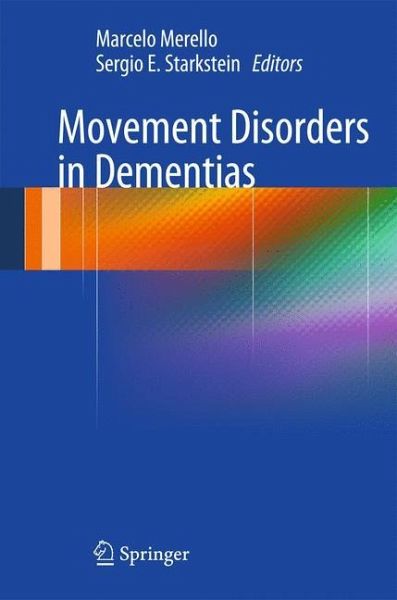
Movement Disorders in Dementias

PAYBACK Punkte
57 °P sammeln!
This book focuses on extrapyramidal signs and symptoms of all types of dementia, and addresses the issue of the artificial boundary between dementias and Parkinsonism, which represent the two most common symptoms found in degenerative central nervous system diseases.In Movement Disorders in Dementias, movement disorder specialists from around the world write on topics generally restricted to dementia experts. Important motor issues related to either medication in demented patients (drug-induced movement disorders) or manifestations common to all forms of dementia, regardless of underlying caus...
This book focuses on extrapyramidal signs and symptoms of all types of dementia, and addresses the issue of the artificial boundary between dementias and Parkinsonism, which represent the two most common symptoms found in degenerative central nervous system diseases.
In Movement Disorders in Dementias, movement disorder specialists from around the world write on topics generally restricted to dementia experts. Important motor issues related to either medication in demented patients (drug-induced movement disorders) or manifestations common to all forms of dementia, regardless of underlying cause (gait disorders, falls, fear of falling), is followed by analysis of the relationship between motor and cognitive symptoms, from their common pathogenesis to specific medical treatments.
Movement Disorders in Dementias is aimed at general neurologists, dementia specialists, movement disorders specialists, neuropsychologists and geriatricians.
In Movement Disorders in Dementias, movement disorder specialists from around the world write on topics generally restricted to dementia experts. Important motor issues related to either medication in demented patients (drug-induced movement disorders) or manifestations common to all forms of dementia, regardless of underlying cause (gait disorders, falls, fear of falling), is followed by analysis of the relationship between motor and cognitive symptoms, from their common pathogenesis to specific medical treatments.
Movement Disorders in Dementias is aimed at general neurologists, dementia specialists, movement disorders specialists, neuropsychologists and geriatricians.





